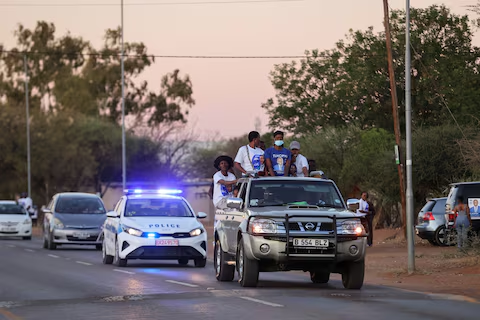Botswana started voting on Wednesday in an election that will determine whether President Mokgweetsi Masisi secures a second term, with slowing economic growth driven by declining diamond demand the central issue.
Masisi’s Botswana Democratic Party (BDP) has governed the southern African state since 1966 and remains the favourite to win despite the party’s falling popularity. Voters elect a National Assembly, with the largest party then choosing the president.
The BDP faces a fragmented opposition with its biggest challenge coming from the Umbrella for Democratic Change (UDC), a coalition led by lawyer Duma Boko. Two other parties have put forward candidates for president.
Voting started smoothly in the capital Gaborone, with long queues outside most polling stations. Over a million people are registered to vote in the country of some 2.3 million, according to the electoral commission.
BDP supporter Penny Mogale, 35, said she was voting for a continuation of entrepreneurship programmes under Masisi which she said had helped her to start a catering business.
“There are no jobs available but the government is giving us an opportunity to create jobs for ourselves. I want the party to be given a chance to continue with these initiatives,” she said.
A 26-year-old security guard at a supermarket in downtown Gaborone said he would vote for change at the end of his shift.
“We work long hours but we earn very little and the government has been refusing to raise the minimum wage,” said Teto Mosweunyane.
The opposition UDC has pledged to more than double the minimum wage from 1,500 Botswana pula ($112) per month to 4,000 pula if it wins.
Economic issues have dominated the campaign. Although Botswana is one of the wealthiest countries per capita in sub-Saharan Africa, a decline in the global diamond market saw its economic growth forecast for 2024 slashed to 1%.
Botswana is the world’s top producer by value of diamonds and has struggled to diversify its economy.
Opposition parties have criticized Masisi for the weakening growth rate as well as high levels of inequality and unemployment, while Masisi says his plans to create jobs were disrupted by the COVID-19 pandemic but remain on track.
Masisi came to power in 2018 through a planned transition after his predecessor Ian Khama served the maximum 10 years in office. He kept the job after a 2019 poll which the BDP won.
Election results are usually announced within a few days.
